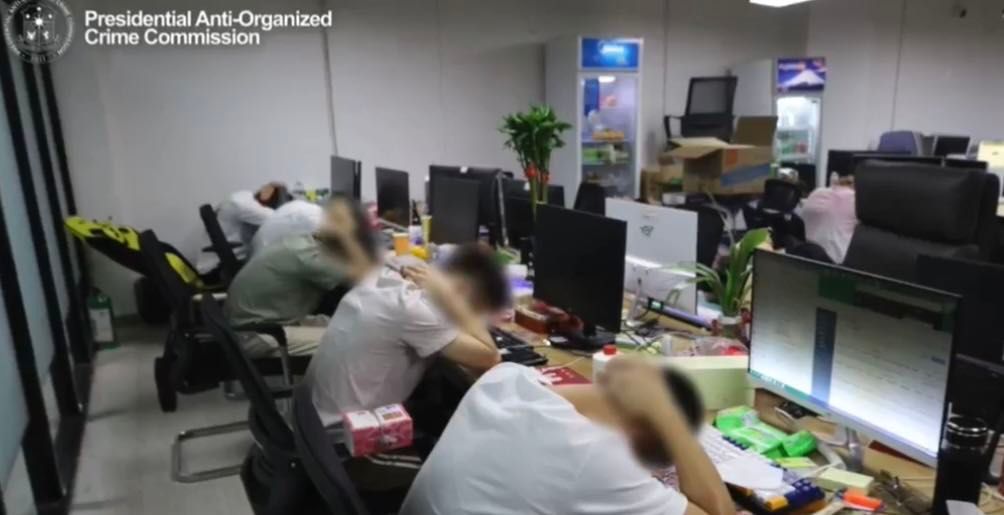PAOCC: 8,000 foreign POGO workers still left for deportation
Of the 11,000 workers from the outlawed Philippine Offshore Gaming Operators (POGO) industry earlier reported to still be in the country, the Presidential Anti-Organized Crime Commission (PAOCC) said that 3,000 have been deported while 8,000 are to be sent back to their home countries.
 Foreign POGO workers are arrested by authorities. (Photo from PAOCC)
Foreign POGO workers are arrested by authorities. (Photo from PAOCC)
During the Quezon City media forum on Saturday, Feb. 15, PAOCC Executive Director Undersecretary Gilbert Cruz admitted that there are still a lot of foreign POGO workers up for deportation even as President Marcos ordered the closure of all POGO facilities in the country by Dec. 31.
“Marami pa po kaming—nasa 11,000 pa po iyong tinitingnan natin. So far, ang naipa-deport pa lang po natin ay nasa tatlong-libo pa lang po (There is still a lot—we still have around 11,000. So far, we have deported 3,000),” he said.
He assured that the remaining POGO workers in the country would be charged with violating pertinent laws, adding that cases have also been filed against dismissed Bamban mayor Alice Guo, other local chief executives, and some government officials because of their links to POGO operations.
Cruz explained that they also have to coordinate with the foreigners’ respective embassies regarding their deportation. A clearance from the National Bureau of Investigation (NBI) is also a requirement before sending them back home.
Whereas before the Philippine government shoulders the ticket costs of the deportation, the PAOCC official disclosed that countries now pay for their citizens’ own tickets after seeing the “sincerity” of the Philippines to go after illegal aliens and POGO workers.
“Actually, for this year, ang dami pong invitation ng Pilipinas for us to talk and provide siguro on how to counter iyong mga POGO kasi ang sabi nila lumalaki po iyong problema nila sa POGO (the Philippines has a lot of invitation for us to talk and maybe provide on how to counter POGOs because they say it’s becoming a big problem for them),” Cruz said, identifying Taiwan, China, Indonesia, and Malaysia as countries that reached out to the Philippines.
However, he lamented that even as the government was able to close down major POGO hubs, some small-scale operations still exist and may be “hiding in plain sight.”
The official explained that areas such as resorts, Makati City, Mall of Asia (MOA) in Pasay City, and Bonifacio Global City in Taguig have become the target of small-scale POGO operations.
“It’s normal to see iyong mga (the) foreigners diyan (there), Makati – normal lang eh (It’s just normal). So, hiding in plain sight,” he said.
“So, kaya nga iyong pag-aaral po na ginagawa ng PAOCC although nakakahuli kami doon sa mga lugar na mga remote but the same thing pa rin ‘no nasa malapit din sila sa mga areas na kung saan maraming tao. Hindi sila magtatago (So, PAOCC is studying that although we made arrests in remote areas but the same thing, they’re also in nearby areas where there are many people),” Cruz added.